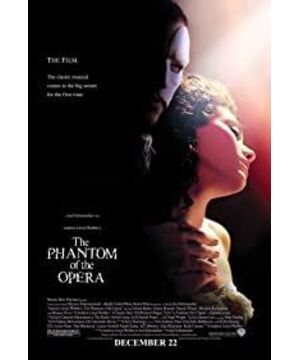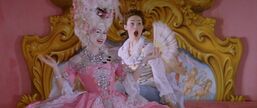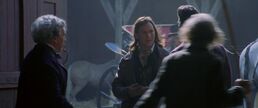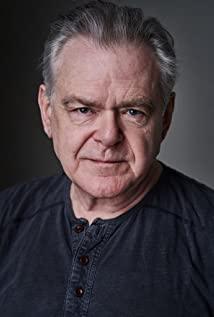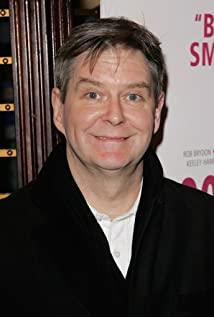This movie really touched my heart and caused a lot of thinking. I think the film reflects two major themes, one is the collapse of patriarchy and the other is the irrationality of love. First of all, what is Christine's feelings for Phantom, I think it's hard to boil down to love, because Phantom plays a mixture of father, guardian angel, and teacher in her life. Furthermore, combined with her father's death in childhood, Phantom is more Mostly a father figure. Electra and Oedipus are complexes that many children will have, and at the age of Christine at that time, it should be the late adolescence (you can look at the physical development, or it may be around 20 years old). At this time, everyone is rebelling against their parents and their authority, which is also the end of Electra. To put it bluntly, the child grows up and does not obey orders. There's nothing wrong with that, of course, but Phantom is not her father. I don't think the Phantom's affection for Christine can be simply attributed to love, but should be a mixture of family affection, possessiveness, and love, and even say that there are few elements of love. Christine's perfection makes up for his own imperfection and shows his talent. Simply put, the Phantom uses Christine as a psychological sustenance to a certain extent, a doppelganger that can realize his unfulfilled dreams, and an agent. people. Of course, there should be some love between such a beautiful girl and getting along day and night. Looking at possessiveness, it is precisely because it is regarded as a doppelganger of oneself, a representative of beautiful things. Therefore, the Phantom has a strong possessive desire for Christine. From the dialogue of the first official meeting, it can be seen that he has materialized Christine, the so-called man is not a tool. He wants to use Christine to relieve loneliness, soothe his soul, and realize his dreams. He regarded Christine as one of his works. To a large extent, this mentality is the embodiment of patriarchal power. Let us analyze the feelings of our parents for us in detail, and separate the so-called family affection. In fact, to a large extent, children are the embodiment of their parents’ perfection of their own life defects. Their success can make up for their failures and regrets. For example, many ordinary parents want their children to be versatile. Most parents want their children to have a good childhood, because most people have regrets in childhood. The works of parents are children. Think about the artist's emotions towards their own works. Because of their own imperfections, we approach and even attempt to create perfection in some way. So Christine's betrayal is largely an inevitable resistance to this kind of patriarchy. Just as everyone will start a family and start a business, they will inevitably leave their parents. It is precisely because Phantom is not a parent, so it is difficult for him to bless Christine. He didn't know how to love at that time, and some were just patriarchal and possessive. It's like treating your child as your own some parents. It's a pity that Christine is destined to belong to no one, and neither do we. Everyone is an independent individual, even the parents who gave me life can't dominate us, let alone the Phantom. Christine has the right to choose freely, and Phantom has no reason to ask for inevitable love. This also leads to the second theme, love is never fair, there is no reason to pay for it, it must be rewarded, it is different from doing business, so many film critics criticize Christine in this aspect, I disagree, she really What went wrong was not communicating well with the phantom. Of course she has the right to choose Viscount over Shadow, just as we have the right to choose our own life. However, she should also communicate with Phantom and tell him why she did it, such as appearance, darkness and light or something (of course appearance is very important, although I am a victim...cry...but I think it's fair, the survival of the fittest), and it was not until the end that I told Phantom that he hated his twisted heart, and it was too late. This is the origin of many family tragedies, because people don't understand each other causing tragedies, let alone Phantom, there is no communication at all. More importantly, Phantom didn't know love, didn't know love, didn't know love at the beginning. . . He has never been cared for since he was a child, and he has always been disliked. It is difficult to understand what love is. He imposed possession and alienation of love on Christine, and it is not a tragedy. When he finally chose to let go, he understood, he understood what love was, love enough to let you go. But it's too late. go. But it's too late. go. But it's too late.
The image is born from the heart, due to my own reasons, although the original intention of the film is not like this, but to a large extent, it reflects how the lack of communication and love The patriarchy collapsed, and also reflects the most unfair and fairest love. one side.
View more about
The Phantom of the Opera reviews


